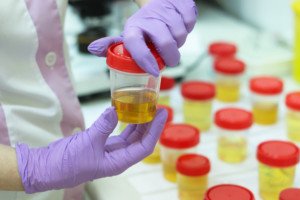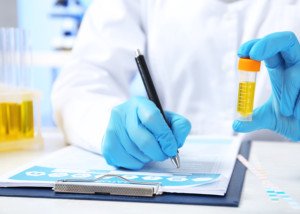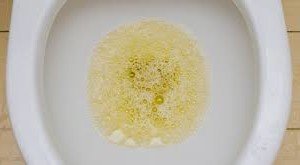Have you read that elevated ketones in a urine sample might mean diabetes or prediabetes? But what about “Trace” ketones in your urinalysis?
You may have read some alarming things about ketones in urine, for instance, how this means that you may be on the road to developing diabetes.
But what about when the lab report says “Trace” for ketones?
And what does it mean when your doctor doesn’t tell you about this, and instead, says that the urinalysis is normal or only shows a urinary tract infection?
What about those ketones?!
“Traditionally, trace ketones in the urine can be a result of starvation, dehydration or early diabetes,” says Michael Ingber, MD, board certified in urology, female pelvic medicine and reconstructive surgery, and founder of The Center for Specialized Women’s Health, division of Garden State Urology.
“We specialists typically take these things into account when evaluating patients.
“If you are otherwise eating and hydrating, and we find ketonuria, we may evaluate you for diabetes.
“If you’re young, healthy and have no risk factors, we typically would simply advise you to hydrate and eat a well-balanced diet.”
What if you were hydrated prior to giving the urine sample?
What if your diet is normal – no ketogenic diet, no severe calorie restriction?
What else can a trace detection of ketones mean?
Dr. Ingber says, “Exercise is known to increase ketosis, which can cause ketones in the urine.”
Did you exercise at some point prior to the urine sample? And especially, was the exercise intense?

Shutterstock/Zeljko Matic
If even several hours before you gave the urine sample, you conducted a vigorous workout – one that was kickass especially such as powerlifting – it certainly wouldn’t be an anomaly that the ketones went into the trace range.
A stronger case for a this would be if you have not been experiencing any symptoms of diabetes:
• Unexplained deficits in your workout training
• Unexplained fatigue
• Excessive hunger despite eating more
• Weight loss despite eating more
• Excessive urination
• Fruity smelling urine
• Excessive thirst
• Vision problems
Get Tested for Diabetes
Instead of wondering if you might even have a prediabetic, asymptomatic condition, ask your doctor to order an HbA1C test.
This test is superior to the fasting blood sugar test for diabetes.
If it comes back normal (below 5.7%), then you don’t have diabetes or even prediabetes.
A value of 5.7 to 6.4 percent means prediabetes. The higher the value towards 6.4%, the higher your risk of this morphing into type 2 diabetes (6.5% or greater).
Next time you plan on giving a urine sample (though sometimes, this is unexpectedly requested), make sure you’re hydrated and well-nourished, and try to schedule your workout for after giving the sample.

Dr. Ingber is board-certified in Urology and Female Pelvic Medicine & Reconstructive Surgery; is a Fellow of the International Society for the Study of Women’s Sexual Health. The Center for Specialized Women’s Health, division of Garden State Urology & Atlantic Medical Group.
specializedwomenshealth.com
(973) 537-5557
 Lorra Garrick has been covering medical, fitness and cybersecurity topics for many years, having written thousands of articles for print magazines and websites, including as a ghostwriter. She’s also a former ACE-certified personal trainer.
Lorra Garrick has been covering medical, fitness and cybersecurity topics for many years, having written thousands of articles for print magazines and websites, including as a ghostwriter. She’s also a former ACE-certified personal trainer.
.










































